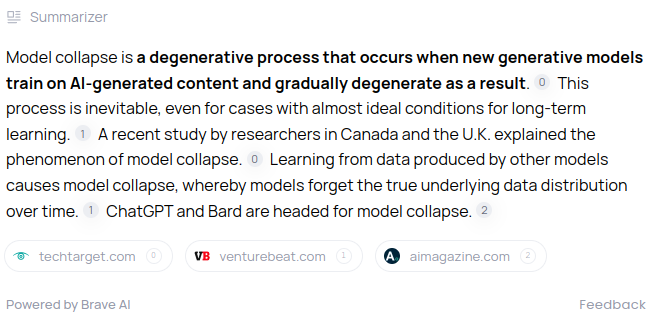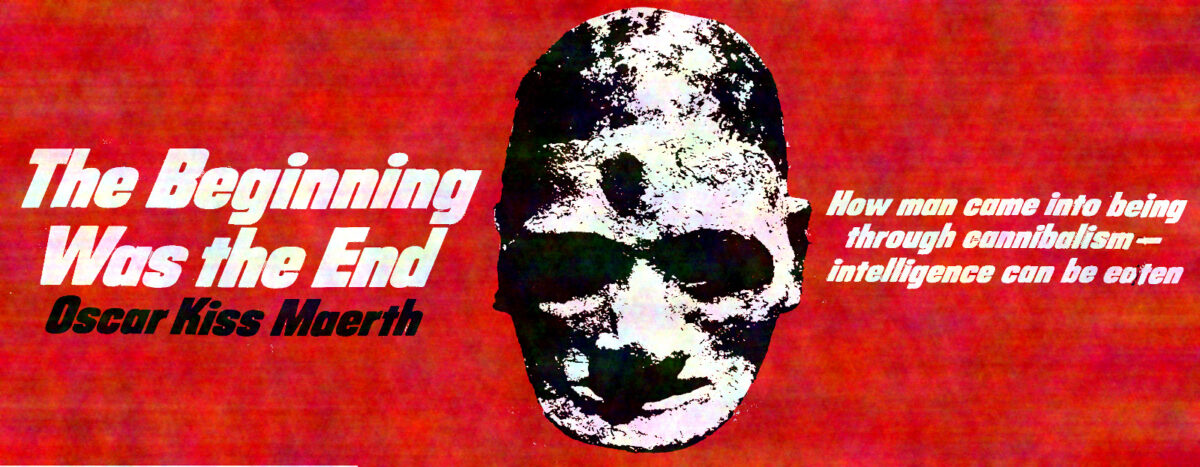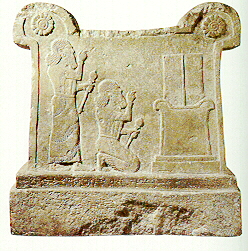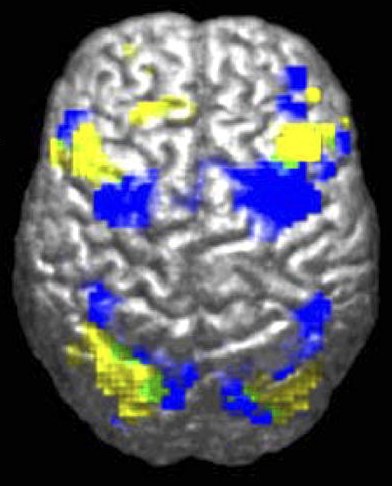What’s model collapse? Here’s what the Brave AI Summarizer says:

Model collapse is a degenerative process that occurs when new generative models train on AI-generated content and gradually degenerate as a result. This process is inevitable, even for cases with almost ideal conditions for long-term learning. A recent study by researchers in Canada and the U.K. explained the phenomenon of model collapse. Learning from data produced by other models causes model collapse, whereby models forget the true underlying data distribution over time. ChatGPT and Bard are headed for model collapse.
Typing “model collapse” into Brave Search
Jerry Casale has warned us about de-evolution for over fifty years, that the increasing use of technology slowly devolves our species. His inspiration, Maerth’s The Beginning Was the End, offers a theory about increasing intelligence through consuming brains.
One ape discovered that eating the fresh brain of one’s own kind increases the sexual impulses. He and his descendants became addicted to brains and hunted for them. It was not until later that they noticed that their intelligence increased as a result. The outcome of this process is HOMO SAPIENS.
The Beginning was the End, p. 37
If model collapse is real, then LLM cannibalism is producing increasing artificial un-intelligence, a reverse of the effect described by Maerth. Could it be that the frequent hallucinations demonstrated by AIs only appear nonsensical to us because our primitive brains merely watch as a superior consciousness disappears into the horizon? I’d prefer not to believe so, but I must recall the final line in DEVO’s cover of “Are You Experienced”: not necessarily beautiful but mutated.




